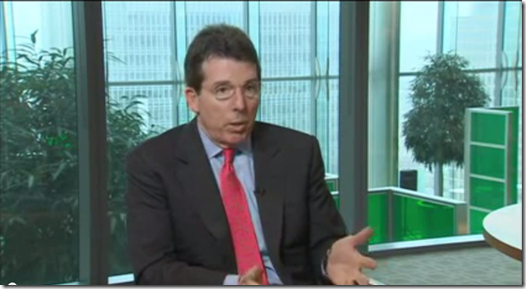Question of the Week: When Did You Stop Beating Your Wife?
If there’s one cliché question that people associate with media training, it’s this one: “When did you stop beating your wife?”
It’s offered as an example of an (almost) impossible question to answer well, since most people will look guilty when they deny the charge. Imagine, for example, that Senator Smith answers the question by saying:
“I’m offended by that. I never beat my wife, and how dare you suggest that.”
The banner headline will inevitably be dreadful, something like:
“SENATOR SMITH: ‘I NEVER BEAT MY WIFE’”

The classic answer that most media trainers offer is a simple one: “I never started.” But even though that answer helps avoid a dreadful headline, it’s always left me a little cold. It feels just a bit too clever and a bit too inhuman.
So here’s this week’s question of the week: What’s the best answer to the classic media training question: “When did you stop beating your wife?”
Please leave your suggestions in the comment section below. I’ll summarize some of your responses in a new post later this week.
Related: Should You Ask Reporters For the Questions Before an Interview?

My answere to that question would be “that’s an absurd question to ask that holds no ground”.
You’ll avoid the headlines as well as answering the question.
“David Holman refuses to discuss wife beating!”
This question has become so legendary – I wonder if it was ever asked? If some reporter actually asked it of some politician or another way back when, and then it became part of journalism lore. It’s always makes me smile.
John – I’ve never heard this question actually being asked of a spokesperson – but if someone knows otherwise, I hope they’ll post a comment on the blog! Thanks for the comment.
Brad
The origin of question is best described as apocryphal.
I always heard the question phrased as, “Have you stopped beating your wife?” Then, whether the answer is “yes” or “no”, the person is screwed.
Although the question may not have been asked in its legendary form, this type of question is asked frequently. Often, it’s done to be a “gotcha” question. More often, it’s sloppy journalism; the question assumes facts never proven or explored. But, hey, let’s go with it, it’s a great story!
I would answer: “Before I met her.”
Shows a sense of humor while answering the question honestly.
When I conduct media training, I tell clients to correct any false assumptions. I also tell them to never repeat negative assertions. However, there are times, such as this one, that correcting the false assumption would lead to repeating the negative assertion. So I’d simply answer with something like this: “I love my wife. We’re heading off to the Caribbeans next week, on our second honeymoon.” (I’d only say that second part if true, i.e., don’t lie. Failing the 2nd honeymoon scenario, I’d use another short, true, positive anecdote.)
This just came to me: Why not call the interviewer on it?
“That’s a terribly leading question, why are asking that?” The Senator’s error in the example is in taking offense and answering the question. In not taking offense but pointing out the leading nature of the question, you can put the onus back on the interviewer while failing to give any quotable material.
“When my wife stopped beating me.” 🙂
I would say: It is impossible to stop doing something I have never done.
Andreas gets my vote!
Andreas has my vote too.
No, Andreas doesn’t get my vote, because the headline from a dishonest reporter could be: “John Doe says it’s ‘impossible’ for him to stop beating his wife.”
I’d say, “Excuse me, who are speaking to?”, “What are you talking about?”, “Why would you say something like that?”, “That’s bizarre! Do you have any other questions?”, or some such non-answer response.
I’d go with something like , “It’s never appropriate to beat a spouse. I stand by that statement in both words and actions.”
“Interesting…I never even considered that! Are you suggesting that I should start?”
I know this would NOT do me any favors but it’d be so tempting as it turns the tables around.
I would respond by asking “I have heard that question asked of others in the past and it made the questioner appear to take domestic violence lightly. Do you take domestic violence lightly?”
I’m no longer a married man. Goodbye Mr. Hedley, I just find that offensive.
I would answer: “If I recall it was a long time before you stopped. When did YOU stop?” The key is to use humour and immediately use a “mirror attack”. Never, ever go on the defence. It will usually stop the attack right then and there and perhaps the person will simply exit the stage or interview.
Added: If your opponent says, “I’m not married.” the answer would, of course, be, “No wonder.” Now you start with, “Mr.____, why do you hate everyone so? Are you that miserable with life?” (By the way, do not look at him but the camera or the audience and use a pleading gesture. I think its called “mugging for the audience”.)
Answer to reporter: When did you stop asking rational questions and start asking insane ones?
i didn’t read all responses,so maybe this was said.i tell people who ask this question (no one ever has)that i still beat my wife up-she gets up at 8AM and i get up at 7AM-so i beat her up by about an hour.also people who ask if i dink (no one ever has) i tell them “yes,but only to excess.”i think this line was lifted from Grocho Marx or maybe it was Karl.
i suppose the math question at the bottom is to prove that i’m not a robot,but i am a robot that enjoys doing math.in the “new math” the answer is 7 if i feel like it is anyway.to make me answer 7 challenges my core being and my MU ALPHA THEDAISM!
Mr reply to the individual asking this question- “Please clarify your question and provide proof of your what you are implying. “
I recall a US top official asking this question as a response to a question from reporters while he was on a visit to Nigeria in the 70s or early 80s. Probably the then Sec. of State.
“Domestic abuse is an inexcusable atrocity, and my wife will tell you it has no better opponent.” A statistic would help. Your audience are the activists who care most about the issue, and you want to show them your support on the topic.